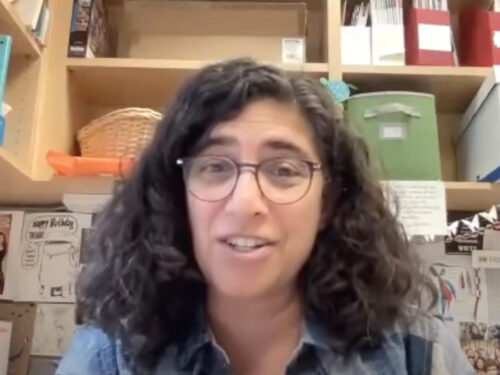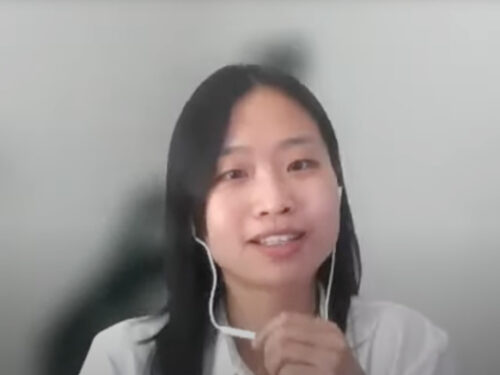With the 2024 US elections around the corner, it’s more important than ever for the public to have access to nonpartisan, high-quality, up-to-date information related to candidates, voting behavior and participation, proposed laws, political parties, and all other topics relevant to the elections.
In August, five scholars from across the country gathered virtually to share their efforts to enhance this critical access by improving election-related content on Wikipedia. Drawing from their experiences as participants of our Wiki Scholars election courses, the panelists reflected on their work to combat misinformation and bridge information gaps on Wikipedia.
The Wiki Education Speaker Series event, “Wikipedia & Politics: Improving articles for a more informed public,” brought together an audience of faculty, students, scholars, and community members from around the world. The discussion explored themes including public access and understanding of election information, the civic duty to share expertise with others, and the rewarding and challenging task of editing political content on Wikipedia.
Prior to starting his PhD at Rutgers University, panelist Anderson De Andrade taught public school. During the discussion, he drew parallels between his approach to teaching and his work on Wikipedia, including the importance of maintaining neutrality and awareness of his own biases.
“As I was going through this [course] thinking about knowledge creation itself…it’s just so complex and so tricky,” said De Andrade. “It has to be done in this kind of democratic process, where you have different people all editing the same piece to create a more fluid and more objective kind of piece.”
Panelist Muhammad Hassan Bin Afzal, visiting professor in the Department of Political Science and Public Service at the University of Tennessee-Chattanooga, underscored his appreciation of Wikipedia’s ability to keep up with an ever-changing political landscape.
“The beauty of Wikipedia is that it’s an iterative document,” explained Afzal. “As a researcher, it takes time to edit and publish something. I really appreciate Wikipedia – if something suddenly changes, it can be very difficult for academic journals to update and inform the public accurately, but Wikipedia has more scope to fill that gap.”
Panelist Tasha Bergson-Michelson, instructional and programming librarian for Castilleja School, stressed the power of Wikipedia as a constructor of authority, particularly in topics of critical social importance like election content.

“[Wikipedia] creates authority for people who should have it and aren’t necessarily granted it,” said Bergson-Michelson. “And I think we grow in ourselves when we edit and learn about new parts of the world we don’t know about, new people we don’t know about.”
Hillel Gray, recently retired from Miami University of Ohio, also highlighted the opportunities for both personal and professional growth when editing Wikipedia.
“You learn a lot about yourself,” said Gray. “You can be an introvert in certain respects, and then you can find yourself in Wikipedia feeling freeform.”
Both Gray and Bergson-Michelson emphasized the public impact scholars can make by bringing information out from behind paywalls to share with all through Wikipedia.
“We have access to really high-quality sources and all sorts of knowledge,” said Gray, noting the breadth of research and academic publications available through institutional credentials. “Just putting these sources into Wikipedia will start to improve the media literacy of people who visit Wikipedia.”

While each panelist shared several key takeaways from their experience improving election-related content on Wikipedia, Yao Yao of the University of Georgia offered one simple yet impactful piece of advice:
“Don’t be afraid of editing Wikipedia,” said Yao. “Everyone can contribute their knowledge and expertise, or even simply update an article when there’s new data, and everyone will benefit.”
Catch up on our Speaker Series on YouTube, including “Wikipedia & Politics: Improving articles for a more informed public,” and join us for our next program this Wednesday:
Wikipedia & Social Justice: How students are enhancing representation and equity
Wednesday, September 25 at 10 am Pacific / 1 pm Eastern
Interested in learning how to add your own expertise to Wikipedia? Explore Wiki Education’s upcoming courses for subject-area experts.
